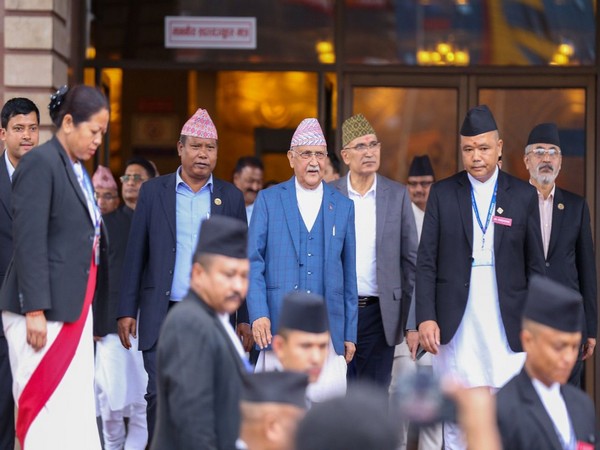A writ petition has been lodged at the Supreme Court of Nepal against the appointment of KP Sharma Oli as the new Prime Minister of Nepal.
The writ petition was filed on Monday ahead of his oath of office and secrecy that was held later in the afternoon at the President’s Office.
Writ petitioners have challenged the referenced clause of the constitution stated by the President while appointing Oli as the next Prime Minister of Nepal after the subsequent failure of Pushpa Kamal Dahal to pass the trust motion from the parliament.
Nepal’s President Ram Chandra Paudel on Sunday evening appointed Oli as the Prime Minister under Article 76 (2) of the Constitution of Nepal.
Khagendra Chapagain, Shailendra Gupta, and Deepak Adhikari filed the writ petition on Monday, demanding that Oli’s appointment be annulled and a new Prime Minister be appointed as per Article 76 (3).
“The writ petition has been registered with the court. The first hearing over the case has been scheduled for 21st July,” court official Gobinda Ghimire confirmed ANI over the phone.
The petitioners have named the Office of the President, the Office of the Prime Minister and Council of Ministers, the Secretariat of Parliament, and the House of Representatives as defendants in the case.
Article 76 of the constitution of Nepal states the provisions about appointment of Prime Minister and the Council of Ministers. As per the Article 76 (1), “The President shall appoint the leader of the parliamentary party that commands a majority in the House of Representatives as the Prime Minister, and the Council of Ministers shall be constituted under his or her chairpersonship.”
In case of a hung parliament or any of the parties in the parliament doesn’t have clear majority in the election then a government would be formed under the sub-article 2 which states, “In cases where no party has a clear majority in the House of Representatives pursuant to clause (1), the President shall appoint as the Prime Minister a member of the House of Representatives who is able to command a majority with the support of two or more parties representing the House of Representatives.”
The petitioners have demanded an order from the court claiming the new government should be formed under Article 76 (3). The article in the constitution states, “In cases where the Prime Minister cannot be appointed pursuant to clause (2) within thirty days after the date of declaration of the final results of the election to the House of Representatives or where the Prime Minister so appointed fails to secure a vote of confidence pursuant to clause (4), the President shall appoint as the Prime Minister the leader of the parliamentary party which has the highest number of members in the House of Representatives.”
Nepali President Ram Chandra Paudel earlier on July 12 had called the political parties in the Nepali parliament to stake a claim for the Prime Minister as Pushpa Kamal Dahal lost a confidence motion. The President had called for the claim of stake as per Article 76 (2) of the constitution.
On the same day, Oli had stacked a claim over the post in support of the Nepali Congress. Oli and Congress President Sher Bahadur Deuba jointly signed an application for the President to appoint the UML chief the new prime minister on Friday evening right after the results of the vote of confidence.
Oli, with the backing of the Nepali Congress and smaller parties on Friday, had submitted signatures of 165 lawmakers claiming majority support in the parliament for the Prime Minister Ship.
The Constitution of Nepal mandates a Prime Minister to cross a majority of 138 in the 275-strong House of Representatives to take over as the Prime Minister. Also, the Prime Minister is also mandated to take a vote of confidence within 30 days of appointment to prove support.
Oli became the Prime Minister for the first time in October 2015 soon after the promulgation of the constitution that year and remained in power until August 2016.
Right after the general election in 2017, Oli, who was able to usher nationalist sentiment amongst the people siding with China formed a government and remained in power from February 2018 to May 2021.
Oli again was appointed as Prime Minister under the constitutional provision of 76 (3) from May 2021 to July 2021 after staking claim as the parliamentary leader of the largest party in parliament. While in power for about three years, Oli had dissolved the parliament twice, which was reinstated by the Supreme Court issuing a mandamus.
As per the July 2 deal between Congress chief Deuba and UML chairman, Oli, the two parties will lead the government on a rotational basis until the next general elections in 2027. But, the deal has not been made public to date.-ANI


